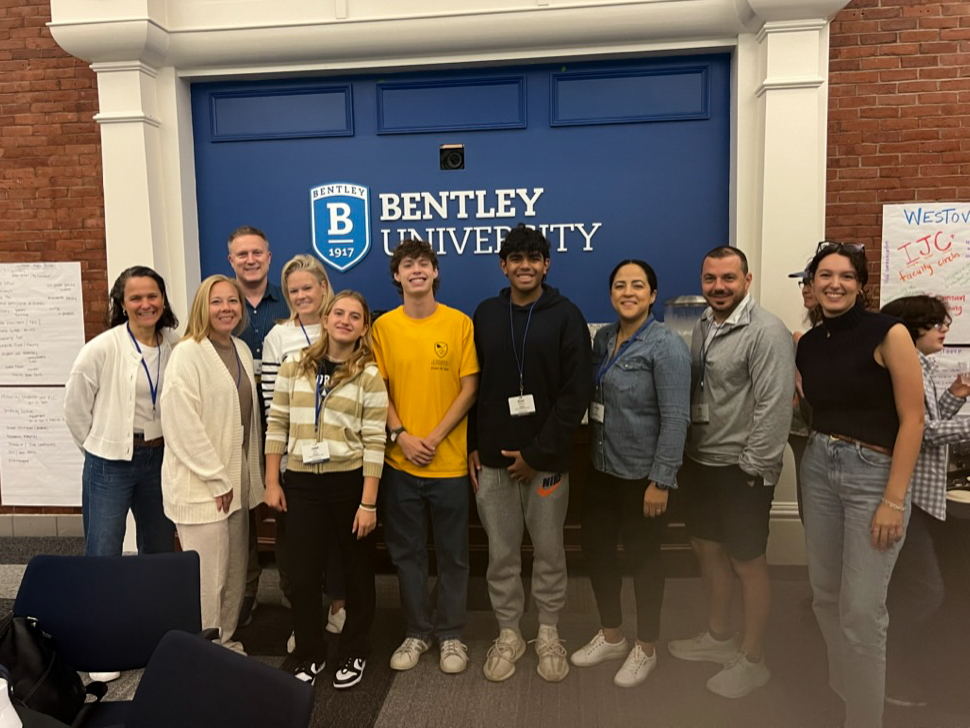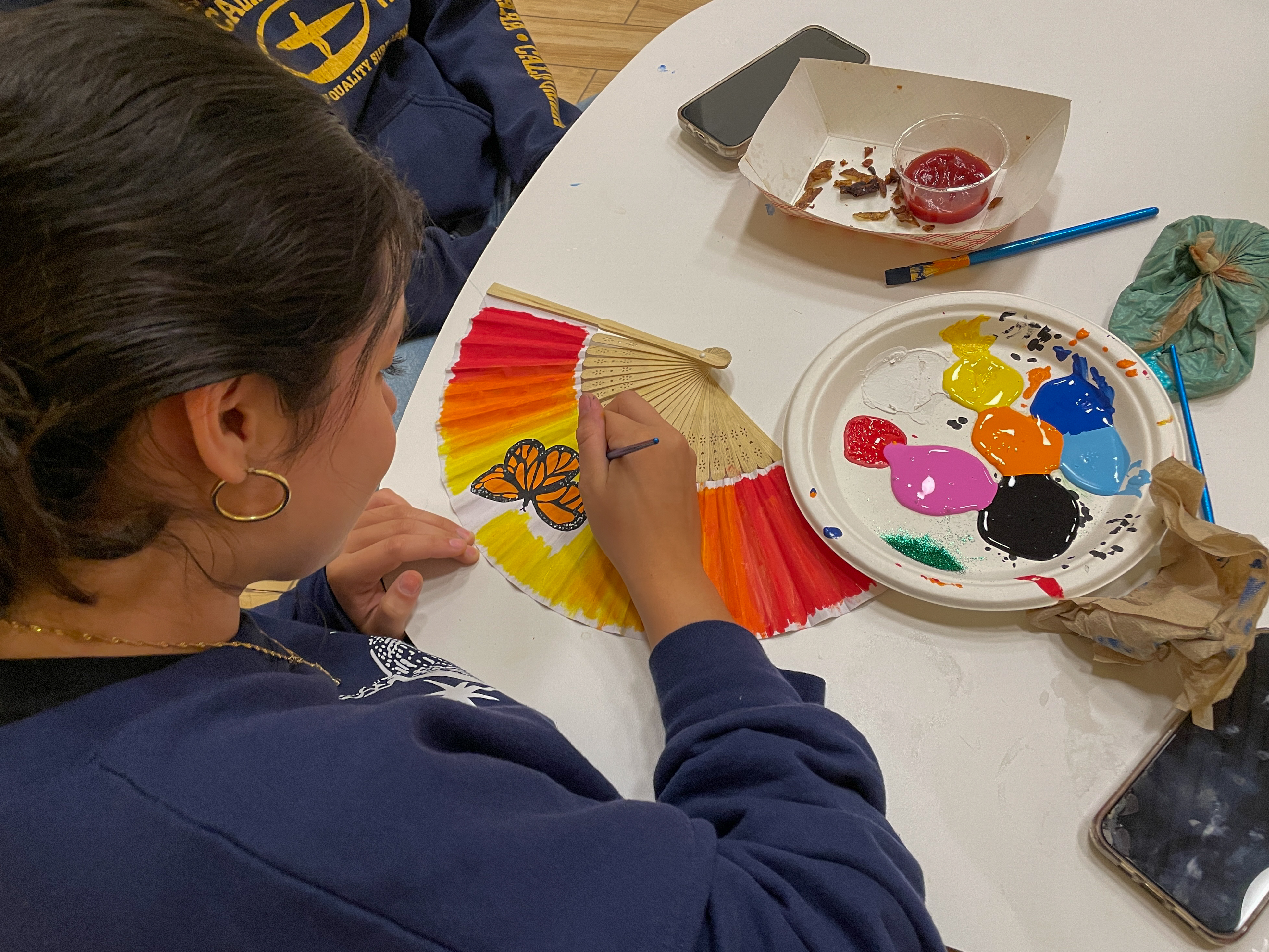Newly elected C-Proctors, returning and new members of the Assessment Team, and Peer Educator Committee attended a day-long conference to develop and hone leadership skills for the upcoming school year. This conference, the third Choate Leadership Institute (CLI), was held this past Monday, May 1, in Getz Auditorium.
Mr. Will Morris, the associate Dean of Students and Director of Residential Life, organizes CLI. He explained that CLI is an opportunity for selected and elected student leaders to “develop empathy” and “to promote self-awareness among leaders.” Various indoor and outdoor activities, designed to accommodate these purposes, ranged from simple introductions and greetings to physical activities building trust.
CLI takes place four times a year: late August, late April, early May, and late May. Various leadership associations were assigned to one of these four training sessions based on similarities in leadership roles and the timing of the election or selection process. The training session in late August is designed specifically for new prefects to prepare them for the New Student Orientation Program, which occurs in early September. The session held in late April trains Student Council officers and Judicial Committee representatives, elected in February and April respectively, on school policies and communication skills. The final CLI of the school year, planned for new athletic team captains, takes place shortly after the results for captainship are finalized. C-Proctors, Peer Educators, and Assessment Team members, who attended the most recent CLI, were grouped together because of their mutual responsibilities in taking care of the community.
Sabastian Chacon ’19, rising fifth-form Judicial Committee representative and C-Proctor, attended both the session in April and early May. Chacon described the days as being “fun and insightful.” He continued, “As a Judicial Committee representative, it is crucial to have listening and critical thinking skills. The CLI trained me in these skills through activities that encouraged people to initiate conversations and diligently listen to others.”
Some activities, according to Mr. Morris, required student leaders “to select ways to represent what they understood.” Other activities helped students “understand their own roles and responsibilities as leaders.”
Chacon explained, “In one of the projects we did in April, each leadership group was asked to create artifacts that represented what it hoped to accomplish next school year and how it viewed itself as a group. The Judicial Committee composed a rap to the song “Mask Off,” by Future, and the Student Council created a timelapse of its members drawing on the whiteboard.”
Commenting on this same activity, Ananya Karanam ’18, the Student Council Secretary, said, “I think it was really interesting to see how distinct aspects of Student Council and the JC were apparent in the way we approached this activity.”
Chacon also explained an activity done last Monday called Ponías and Chispas. “We were divided into two groups of people, each modeling a type of society. One group resembled a matriarchy — more reserved and formal, with their women being the mediators for men and the only ones talking to women from other cultures. The other group did not have this kind of gender divide, was more informal, and were always willing to initiate conversation.”
CLI was also a time for students to get to know each other and meet new people. Samantha Stevenson ’19, a newly admitted member of the Assessment Team, said, “I enjoyed meeting my fellow members on Assessment Team. We collaborated on various activities that were helpful team-building exercises.”
However, the CLI for Student Council and Judicial Committee felt more divided. According to Tommy Wachtell ’19, “During the day, Student Council and the Judicial Committee were separate, often competing against each other in healthy competition. I wish we worked together more as a cohesive unit. If this were done, collaboration between the SC and the JC could spark, and possibly start to take place outside of CLI; And legitimate impactful change should occur from this co-operation.”
Baji Tumendemberel ’18, a new member of the Judicial Committee, said, “CLI was a great opportunity for student leaders to meet each other in a casual setting, but the actual activities were a bit abstract.”
Clark Devoto ’18, who attended the most recent CLI as a C-proctor, agreed, saying “Although it certainly felt well organized and managed, and gave us general instructions on leadership, I felt that it should have been more specified towards the roles that students are pursuing.”
Overall, the activities organized by Mr. Morris received positive feedback from the student leaders, and the CLI was a memorable and worthwhile experience for many who have attended. Wachtell concluded, “I enjoyed CLI. A host of basic aspects that come with being a leader, such as social skills, problem analysis, and teamwork are stressed throughout the day. Additionally, we are also reminded that voicing your opinions and representing the student body is just as important as listening to them. It is easy for us as leaders to forget our task and roles on campus, CLI reminds us to stay on track right from the get go.”




